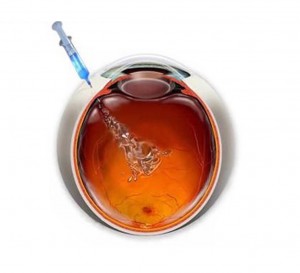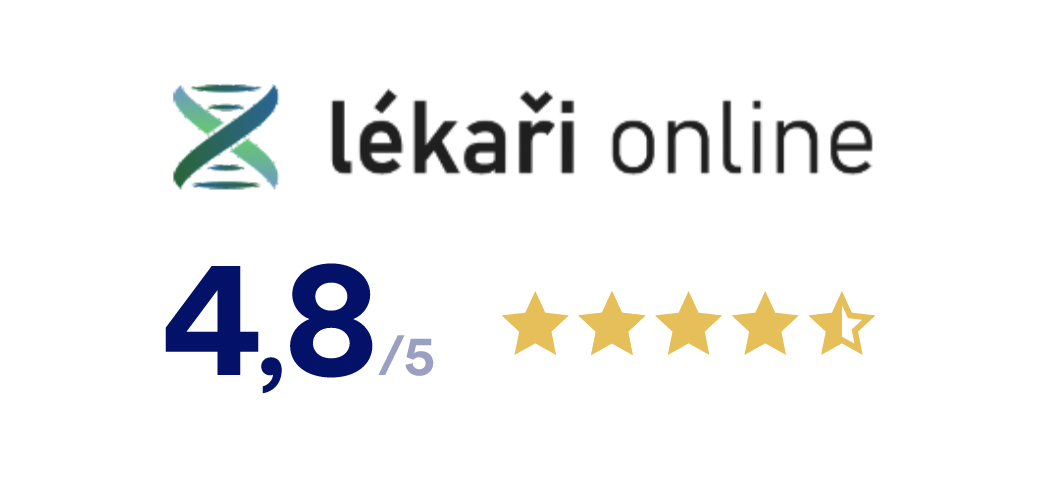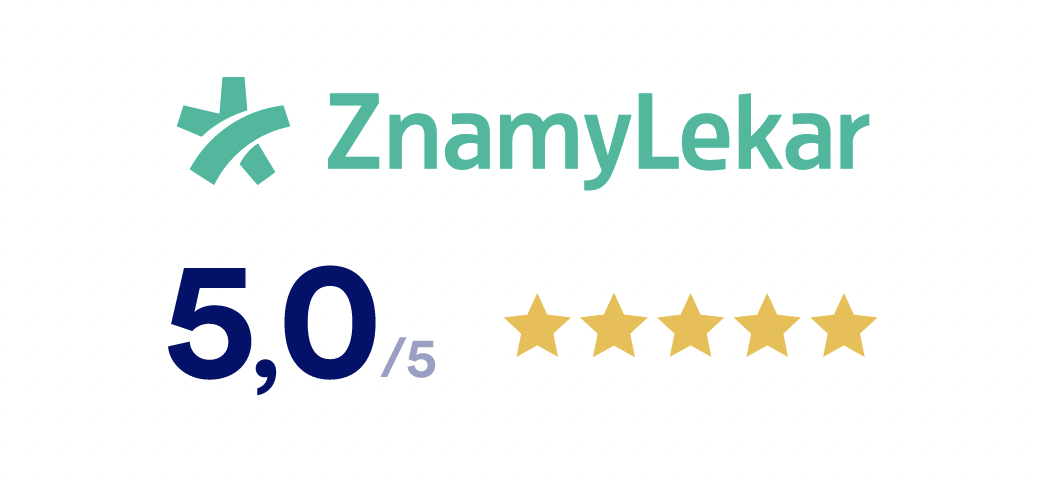Biological treatment of the retina (intraocular injections)
The Eye Centre Prague has become a specialized facility (referred to as a "center") in Prague and the Central Bohemian region that can provide biological retinal treatment using anti-VEGF agents, fully covered by health insurance. This expands our care for patients and offers a modern treatment option for serious retinal diseases, which can potentially lead to vision loss.
Biological treatment of the retina involves the administration of intraocular injections with an anti-VEGF preparation into the vitreous, which prevents retinal swelling and bleeding while also suppressing the growth of new blood vessels. Biological treatment is targeted, highly effective, and timely administration can halt or significantly slow the progression of the disease. Without treatment, vision loss can be rapid and severe, potentially leading to practical blindness.
and bleeding while also suppressing the growth of new blood vessels. Biological treatment is targeted, highly effective, and timely administration can halt or significantly slow the progression of the disease. Without treatment, vision loss can be rapid and severe, potentially leading to practical blindness.
Who is biological treatment suitable for?
The administration of intraocular injections with anti-VEGF preparations is indicated for patients with the following retinal diseases:
-
Wet form of age-related macular degeneration (AMD)
In age-related macular degeneration, the macula (yellow spot) is affected, leading to the loss of central vision. In the wet form of the disease, abnormal blood vessels grow on the retina, leaking fluid and bleeding, causing retinal swelling and even detachment.
-
Diabetic macular edema (DME) in patients with diabetic retinopathy
This is a complication of diabetic retinopathy, where bleeding and swelling occur on the retina due to leaky blood vessels. Biological treatment is used when previous laser therapy fails.
-
Retinal vein occlusion
This is the second most common vascular retinal disease, where a blockage in the retinal vein causes macular swelling. Biological treatment is used when laser therapy has been unsuccessful.
-
Myopic macular degeneration
Occurs in patients with severe myopia, where an enlarged eyeball causes thinning of the retina. Abnormal blood vessels grow, leak, and bleed into the retina, causing swelling.
Anti-VEGF drugs are classified as "centered" medications, meaning they are costly. Health insurance companies cover them based on specific criteria for these diseases. We have contracts with all health insurance providers for the provision of biological treatment using anti-VEGF preparations.
Intraocular injection administration
The administration of intraocular injections is completely painless and quick, performed on an outpatient basis in an operating room. Before the procedure, the eye is numbed with drops, and the eye and surrounding area are disinfected and covered with a sterile drape. The injection itself takes just a minute. The active substance is delivered to the patient using a very fine needle, in small doses, into the vitreous of the eye.
Innovations in biological treatment
We are among the first centers in the Czech Republic to start applying the newest, most advanced biological treatments. The advantage of this treatment is its long-term stability and dual-effect biological medication. Additionally, this new treatment requires fewer intraocular injections for patients with retinal diseases compared to current medications.










